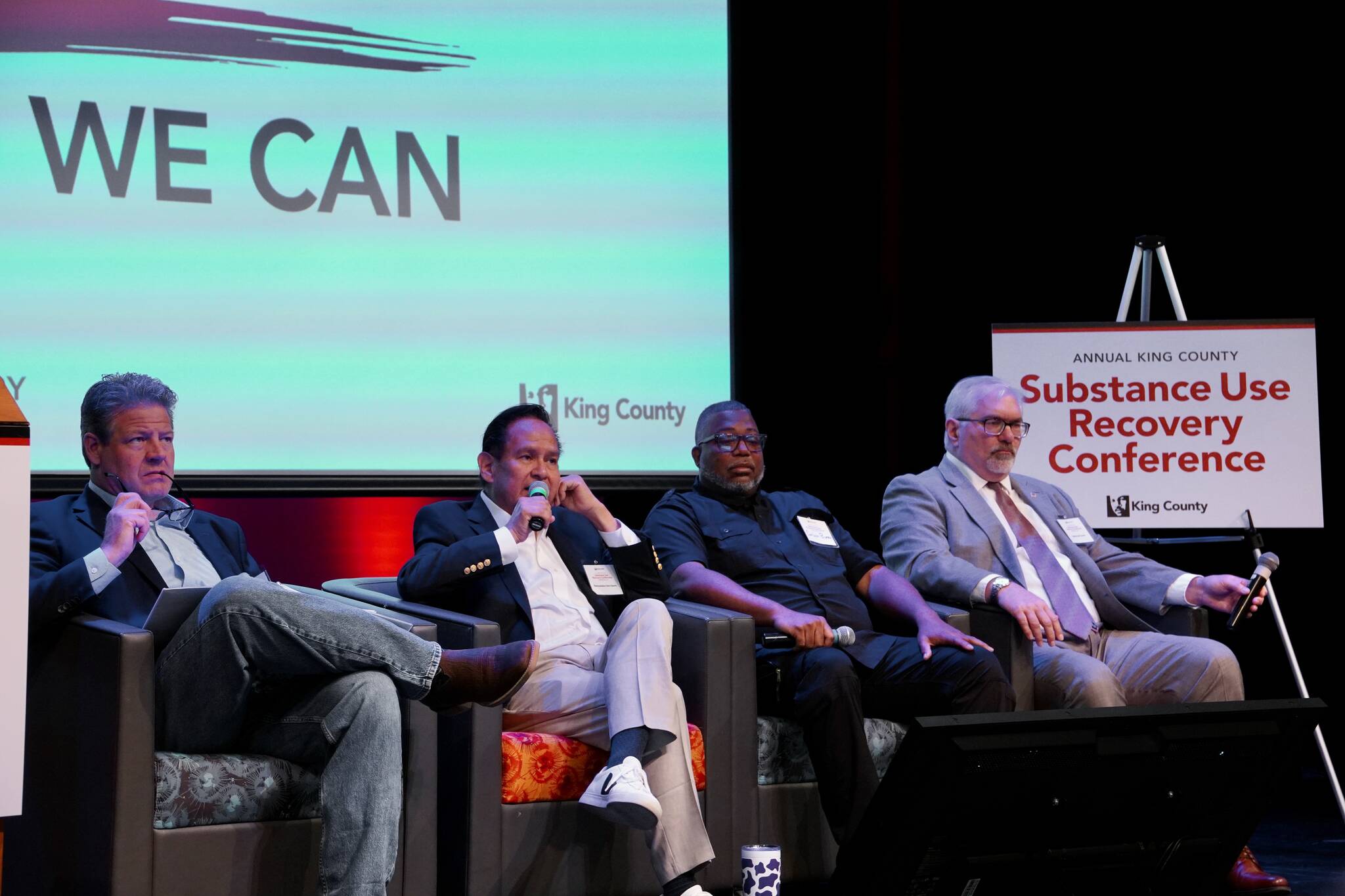King County Councilmember Reagan Dunn (District 9) hosted the fifth annual Substance Use Recovery Conference, with the theme “Together We Can,” featuring multiple speakers and service providers.
This year’s conference was held June 25 at Green River College in Auburn. According to Dunn, the event highlights pathways and opportunities for people on their journey of recovery. Dunn said the event is also for family and friends of people struggling with substance abuse to know what the local resources are.
Dunn said around 50% of King County residents have someone in their family with substance use issues, but they don’t know where to go for help. Dunn said through the conference, people with family members struggling with addiction can find what kinds of services are available, how to get people into treatment and how it can be paid for.
Apart from Dunn, other sponsors of the event included the King County Council, Seattle and King County Public Health, the King County Recovery Coalition, the King County Department of Community and Human Services, the Muckleshoot Tribe, and Green River College.
The event featured booths from various service providers, including Peer Kent, Greater Seattle Intergroup of Alcoholics Anonymous, Recovery Alliance, and many more. Dunn said the event features many different approaches to address substance use, and some might disagree with one another, but all of those perspectives are important.
“My view on it is that in order to accomplish meaningful results in reducing addiction and overdose, then we need all of those tools in the toolbox, and then the professionals can decide which set of strategies will work the best,” Dunn said.
The first panel of the day included Dunn, 47th District State Rep. Chris Stearns, Muckleshoot Behavioral Health Clinic Supervisor Carlton Buren and Federal Way Municipal Court Judge David Larson. They spoke on topics including how their lives intersect with recovery, challenges while working with individuals with substance use issues, working with other parts of the substance use and behavioral health systems, and what can be improved to make sure no one falls through the gaps.
Stearns shared that he’s in recovery from substance use, and in two weeks, he will be celebrating 15 years of sobriety. Stearns said that in his work as a state representative, he helped secure $1 million in funding for the Thunderbird treatment center, which will be on Vashon Island.
But, another side of behavioral health Stearns said he’s interested in addressing is gambling addiction. Stearns said if someone has a substance abuse addiction, it’s usually not hard to tell, but with a gambling addiction, it’s easier to hide, so help usually doesn’t come until someone is in the late stages of it.
Regarding treatment facilities in the area, Stearns said that he lives in north Auburn and a facility named We Care Daily Clinics opened up near him. We Care is an opioid substance abuse treatment center. Stearns said some of his neighbors were freaked out about the facility, but crime has actually gone down in the area since the facility opened.
“I think it’s because when people who need help, when they get help, they’re getting hope, and they’re finding that other people do believe in them,” Stearns said. “So I think it is really important to get the word out to whatever cities that you’re living in that these are important things to have and they make a difference, and they’re actually improvements and not detriments.”
Dunn finished the panel speaking about his own experience with getting sober, tying it back to destigmatizing substance use recovery. Dunn said there is a lot of stigma attached to struggling with substance addiction that can impact various parts of one’s life, such as employability, relationships and even housing. Dunn shared that he has struggled with alcohol use, but has now been sober for eight years.
“We got to get past the stigma and, CEOs, sports stars, elected officials, anybody who has a story to share, you know, they don’t have to, but I think it helps if people talk about it, if we can slowly break down the barriers,” Dunn said. “It’s a disease, man. I really believe in the disease model, and people can be comfortable asking for help and not be beat up so badly. We got to stop beating people up for making the right choice to get sober.”



